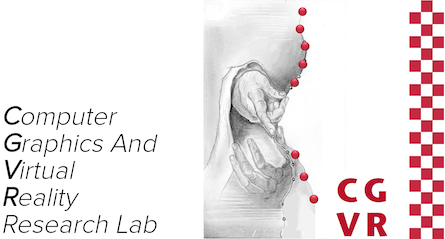Miscellaneous
Programmieren
Bitte verwenden Sie unbedingt unsere Programmierrichtlinien bzw. Coding Guidelines (only available in the university network)! Keine Angst, diese enthalten einfach eine kleine Liste hilfreicher Tips & Tricks, und einige einfache Konventionen, die sich als sehr hilfreich herausgestellt haben. In "The Missing Semester of Your CS Education" finden Sie weitere Tipps, wie Sie die Kommandozeile beherrschen, einen leistungsstarken Texteditor verwenden, ausgefallene Funktionen von Versionskontrollsystemen nutzen und vieles mehr!
Tips for Giving Presentations
When you give your first presentation, my suggestion is: pick one of the documents below, read it, prepare your talk, repeat n times: read the tips again, practice your presentation. For your next presentation, pick another tips document.
First of all, here is a
bad example,
taken from a real presentation at a real conference.
I cool, and quick video on
How to avoid
death by PowerPoint by David Phillips, Stockholm.
Even though scientific presentations are a little bit different from
the kind of presentations he is talking about (business and
marketing), the rules he gives can still be applied to scientific
presentations, mostly.
Here are the
Ten Golden Rules
for delivering good presentations (in German).
Here is another
set of tips,
a litle bit lengthier (in German, too), written by
Georg Schied, Jügen Schwille, Bernd Holzmüller, Rainer Koschke.
(Source)
Here are some tips on
How to Give a Good Research Talk
by Peyton Jones, Hughes, and Launchbury; ACM SIGPLAN Notices 28(11), Nov. 1993, 9-12.
The part on technology is a bit outdated, but the rest still gives valuable advice.
The same goes for the
Speaker's Guides for Students
by Ian Parberry, University of North Texas.
Hier finden Sie einige
Hinweise für Seminararbeiten
von Prof. Wolfgang Coy, Humboldt-Universität zu Berlin;
allerdings stimme ich ihm nicht zu, dass
"Der mündliche Vortrag [...] durch Vorlesen eines Manuskripts [erfolgen kann]".
A very inspiring rant against Powerpoint is Edward Tufte's
PowerPoint Does Rocket Science. (Here is the original source; Edward Tufte is, by the way, a very renowned visualization expert)
Pretty much fun is also this
Conference Presentation Judo,
but it is geared towards longer presentations, such as tutorials.
(Here is the
original source)
Tips for Creating Good Posters
Here is a funny video
by Mike Morrison
showing you why it is important to create good posters
and, more importantly, how to create good posters.
Note that not every statement in the video is applicable to computer science,
but most of it is relevant.
Here is a local copy, just in case.
Schnelle Kurven- und Flächendarstellung auf grafischen Sichtgeräten
Here you can download the PhD thesis of Prof. Dr. Wolfgang Strasser: "Schnelle Kurven- und Flächendarstellung auf grafischen Sichtgeräten", 1974. On the last page, 6-1, in chapter Future Work, he describes basically the Z-buffer.
The MultiVR Lab
Our laboratory is a space designed to facilitate computer graphics research and learning. For this purpose, we provide hardware that is intended to inspire and motivate ideas for development and insights.
Conferences and Workshops
We organized the following conferences:
VRIPHYS 2014
GI VR/AR 2014
EuroVR 2014
ICAT-EGVE 2014
Extended Reality for the Operating Room (XR4OR) 2025
Extended Reality for the Operating Room (XR4OR) 2026
And the following Workshop:
Haptic Methods and Technologies for Virtual Assembly Simulations (a Workshop of the IEEE World Haptics 2017).
Joseph Weizenbaum
Here is one of the last interviews with Joseph Weizenbaum, which I recorded from a radio broadcast (I forget, unfortunately, which program). He was a pioneer in AI and later a critic of mankind delegating too many important tasks and responsibilities to machines.

